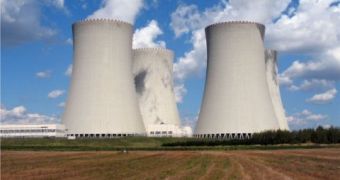According to Nature Climate Change, a monthly journal that deals with researching the impact of climate change on the world's economy, both Europe and the USA are soon to be faced with having their power generating capacities severely impaired.
Thus, odds are that, starting with the year 2031 and up until the year 2060, Europe will be forced to cut down on the thermoelectric power it currently produces by about 6-19%, whilst the USA will find itself in quite a similar situation, as the thermoelectric power it presently generates will go down roughly 4-16%.
As sciencedaily.com informs us, this future status quo is due to the fact that, as a result of global warming, our planet is faced with high water temperatures and rather reduced river flows. But why should these environmental changes affect our major energy stations?
Well, the situation is very much like a game of domino. As indicated by official reports, 91% of the electric energy produced in the US comes from thermoelectric power plants, and Europe relies on the same source to provide for 78% of its energy needs.
Now, thermoelectric power plants need water is order to cool off and not overheat, and it seems that the thermoelectric power sector is presently responsible for using up to 40% of the water supply in the USA, and 43% of the water supply in Europe.
Naturally, if water temperatures worldwide increase, cooling off the afore-mentioned thermoelectric stations will be a much more difficult thing to do, and this can easily translate into reduced efficiency and a diminished energy production.
Last, but not least, it is quite obvious that not having as much energy as we used to have will eventually lead to prices going up for whatever we still have at our disposal.
So, to recap: global warming leads to not being able to cool off thermoelectric power plants as efficiently and as quickly as needed.
Not being able to successfully prevent thermoelectric power plants from overheating means that energy production will have to be cut down so as not to put any further strain on the stations; having less energy available for use means having to pay more for the one we do have.
However, researchers are presently trying to figure out ways to use saltwater instead of freshwater for the purpose of satisfying the needs of the energy sector, and should they succeed, things might brighten up a bit, as the oceans are not likely to have the temperature of their waters increased as quickly as rivers do.
All in all, this situation only goes to show that not caring about the environment will come back and hit us where we are most vulnerable, and that climate change is something to be taken seriously both by high officials and by ordinary people.

 14 DAY TRIAL //
14 DAY TRIAL //